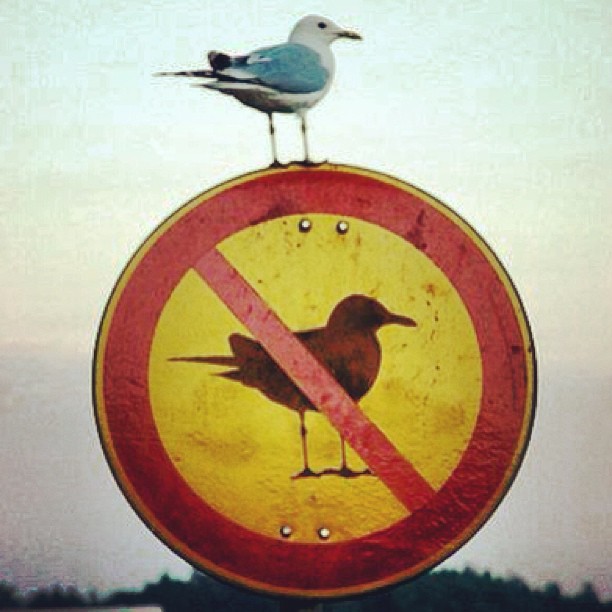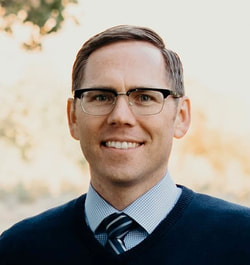|
Last week I was in Pittsburgh at Galaxy IV - a national conference for all the industry professionals in the Cooperative Extension System. It was me (a disruptive millennial) and all my (baby boomer) colleagues who have been in their jobs longer than I have been alive. Needless to say, I don't exactly 'fit in.' I get the feeling I make some of them very nervous and they often ask me, "Why are you even in Extension?" Ah, nice to work with you too...my general response is something like, "Are you kidding? I was born for this!" I love using science to improve people's lives. I'll be honest, I didn't even know Extension existed before I started working for Utah State University a few years ago. But the reason I accepted my current role is because I recognized the system is broken and saw an opportunity to change it.
What does it mean to be broken? Well, if I think it's broken...it's broken. How did Cooperative Extension get broken? The world changed. It's been 100 years since the Smith-Lever Act of 1914 and at our national gathering we're talking about how to stay relevant...hey folks, we're not relevant. When was the last time a 25 year old came into your office to ask you a question about gardening, canning, leadership, or growing alfalfa? That's right, they googled it and got the answer from a site unrelated to Extension. Was it the right answer? Was it research-based? Will it improve their life? Do you care? If you do, keep reading. How are we going to change? How are we going to reach a new generation of clients in such a dynamic world? How are we going to share our research with people who need it, but don't even know we exist? I see enormous potential to make the system work again. But we have to become the most tech-savvy people with the ability to harness the power of the Internet, social networks, smart mobile devices (this includes things coming down the pipeline i.e. Google Glass, iWatch), the cloud, augmented reality, leap motion, speech recognition and so much more. Some of my colleagues agree, but many do not and are fine with the status quo. Over the next 100 years we have the opportunity to deepen relationships and make even greater impacts. I know we can scale it faster if we share information and work together. We must reject complacency, imagine what can be, and then try it! We must generously share, question everything, tell stories, produce remarkable impacts and scientific breakthroughs while connecting people and inspiring others to do the same.
10 Comments
Great post, Paul. I wish I could have run into you at Galaxy. If you felt outnumbered there, just imagine how a 20-something feels at a Family & Consumer Sciences conference. That was me six years ago when I started in Extension, and I'm still outnumbered. I've been in the system long enough to know that while we're obviously needed in some respects (anything that can't easily be Googled), and those needs have to be met in very, very different ways with a completely different audience than what our baby boomer colleagues are used to working with. We've come a long way at Ohio State in the past several years with most in the organization finally coming to terms with the fact that something needs to change, in a big way. But I'm still worried that we may have to wait for an entire generational turnover within the system to take place before change can happen at the pace that's needed... by then it may be too late. There are signs that I'm wrong. So many people are doing good things across the country, but more collaboration is needed. I still get shocked when I present at conferences and see people's jaws hit the floor when I tell them I am willing to share my social media materials and "curriculum" that I've created. They can't believe someone would have the audacity to freely share their hard work... which is ridiculous. Why wouldn't I want to share something that could move us all forward? It boggles my mind that people would think otherwise. Until we can get passed a mentality of "this is mine, not yours" and move more toward the "team" mentality of open and free sharing, I think it's going to continue to be a huge barrier to our progress. None of the Millenials in my sessions are when I mention that I will share my work, because they expect me to.
Reply
Jeff Young
10/8/2013 10:53:55 pm
Reply
Jessica
10/13/2013 08:53:04 am
Hi Jaime - nice post! I am in the generation that seems to have been forgotten (X), but I seem to identify a bit more with the Millenials when it comes to this issue. I work in Coop Extension in WI and have been caught up in many conversations about how everyone wants to break down the silos and change, but it doesn't seem to happen much beyond working on cross-program teams. I think there is definitely room for more, while respecting Coop Extension history and the experience of more seasoned colleagues. I also think it will require a complete overhaul of the way we think about our roles and program areas, as well as the way we approach education. But, as a PT interim employee, I can only attempt to change so much :)
Reply
10/13/2013 08:59:43 am
Until 1991, all Cooperative Extension materials were considered public domain. University of Minnesota was the first university to start copyrighted Extension materials. All land-grants have followed suite in one form or another. Some are using a Creative Commons license and allow faculty to make the decision to share openly with a license that allow others to change (remix) and repurpose the materials. The more open we can make our materials, the more likely that they will be shared and redeveloped into materials that have greater reach and impact.
Reply
Paul McConaughy
10/14/2013 12:28:29 am
Keep fighting the good fight Paul.
Reply
I sincerely appreciate each of you for taking the time to comment and share your insights, perspectives, and stories. Sorry it has taken me so long to reply, I'm just a busy Extension Agent and more focused on fixing Extension than further defining the problems of our system. Whether or not you agree that "Extension is Broken," I think we can all comfortably say there's room for improvement.
Reply
Stephanie Bowden
6/12/2014 01:06:47 am
Paul- We can all agree that we need to change, but who is leading the fight? Who is our WIlliam Wallace? Who will begin? If everyone goes in a different direction it wouldn't make a difference compared to a concentrated effort to grow and change. I am 4-H based. I feel our relevance is being overlooked because the 'system' allows FFA and FCCLA in the schools and yet 4-H- an AMAZING Leadership program is left for those who are willing to use extra time to do it. Therefore, if an event that is school based conflicts with 4-H, guess which takes precendence? We need to stop being kind and standing back, we need to be bold and tout our wares!
Reply
A concentrated effort is the only way to move forward together. That is why it is so important to connect online, share and collaborate. I have also seen so many teenagers drop 4-H simply because it's considered to be "for kids" when they get to high school. Without a 4-H club presence with a caring mentor/advisor in each high school it will be nearly impossible to keep teens engaged in leadership and other 4-H project areas.
Reply
12/8/2020 04:38:06 am
We are one of the authorized person for bus branding in Chennai metropolitan across Tamilnadu. Bus Back Panel Advertising in Chennai, MTC - Chennai City Bus Advertisement, Bus Advertising Agency, Bus Ad Agency, Bus branding in Tamil Nadu, Bus back advertising size, Bus back advertising Chennai, Bus back advertising cost in Chennai, Government bus advertising, Bus advertising rates in Chennai
Reply
Leave a Reply. |
Paul Hill, Ph.D.I design, plan, and evaluate economic development programs for Utah State University. Archives
September 2022
Search this site:
|


 RSS Feed
RSS Feed
